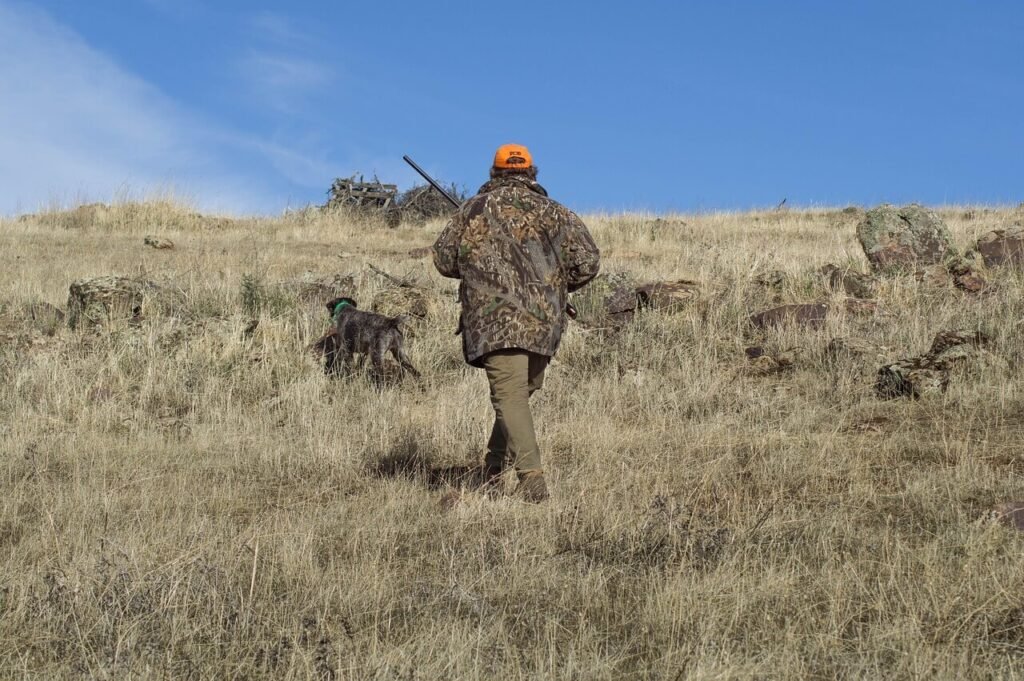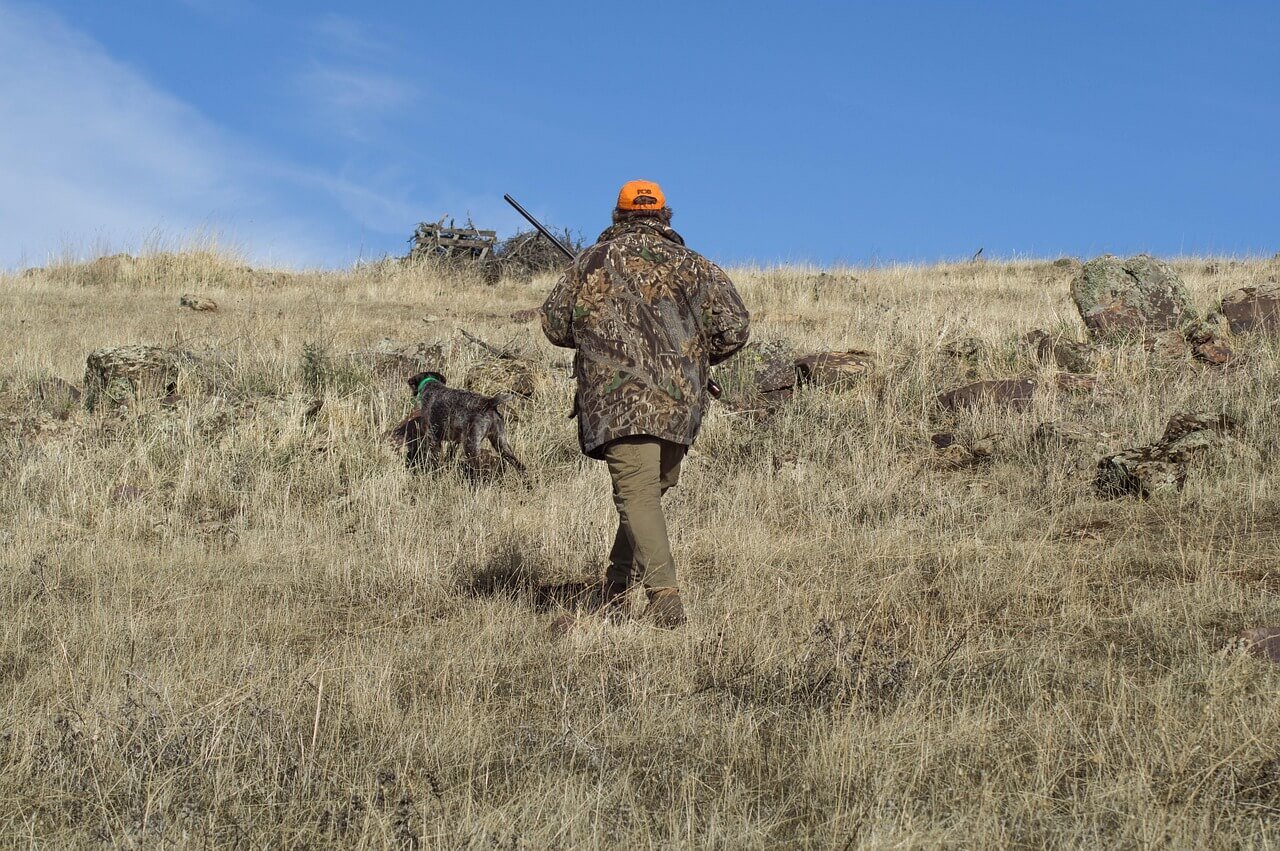How to Train a Hunting Dog: Unlocking the Potential of Your Furry Companion
Training a hunting dog is both an art and a science. It requires patience, consistency, and a deep understanding of your dog’s instincts and personality. Whether you’re a seasoned hunter or a beginner looking to bond with your canine partner, teaching a dog the skills needed for hunting can be a rewarding journey. From basic obedience to advanced fieldwork, every step shapes your dog into a reliable and skilled companion. In this guide, we’ll explore the essential steps and strategies to train your hunting dog effectively while fostering a strong bond between you and your four-legged friend.
Essential Traits of a Successful Hunting Dog
Before diving into training techniques, it’s important to understand the qualities that make a dog well-suited for hunting. These traits are often innate but can be honed through proper training. Here’s what to look for in your hunting dog:
Strong Prey Drive
A hunting dog should have a natural instinct to chase and retrieve prey.High Energy Levels
Hunting requires endurance, so your dog needs to be energetic and physically fit.Intelligence and Trainability
A smart dog will learn commands quickly and adapt to various hunting scenarios.Focus and Determination
Your dog must stay focused on the task, even in distracting environments.Good Nose
A keen sense of smell is crucial for tracking scents over long distances.
Understanding these traits will help you assess your dog’s strengths and tailor your training approach accordingly. Remember, every dog is unique, and identifying their natural abilities will set the foundation for successful training.
Basic Training Steps to Start With
Laying a solid foundation is key to training a hunting dog. Begin with these fundamental steps to ensure your dog is ready for more advanced tasks later on.
Teach Basic Commands
Start with simple commands like “sit,” “stay,” and “come.” These form the basis of all future training.Practice Leash Walking
A well-behaved dog on a leash is easier to control during hunting trips.Introduce Retrieving Games
Use toys or dummy objects to teach your dog how to fetch and return items.Socialize Your Dog
Expose your dog to different environments, people, and animals to build confidence.Reward Good Behavior
Positive reinforcement through treats or praise encourages your dog to repeat desired actions.
By focusing on these basics, you’ll create a strong framework for your dog’s development. Consistency and patience are key as you progress through each step.
Check this guide 👉Duck Hunting Dog: Best 7 Tips for Training & Care!
Check this guide 👉Top 5 Best Bacon Dog Treats for Ultimate Pawsome Rewards!

Training Tips | Common Challenges |
|---|---|
Start with short training sessions | Dogs may lose focus easily |
Use positive reinforcement | Some breeds take longer to learn |
Be patient and consistent | Weather conditions can disrupt training |
Gradually increase difficulty | Overtraining can lead to fatigue |
Keep sessions fun and engaging | Distractions in outdoor settings |
Advanced Skills for Fieldwork
Once your dog has mastered the basics, it’s time to move on to more specialized skills required for hunting. These advanced techniques will prepare your dog for real-world scenarios.
Scent Training
Teach your dog to follow specific scents by using scent trails and rewards.Gunfire Desensitization
Gradually expose your dog to gunshots to ensure they remain calm during hunts.Directional Commands
Train your dog to respond to hand signals or verbal cues for directions.Water Work
If applicable, practice retrieving objects from water to enhance versatility.Stamina Building
Incorporate long walks or runs to improve your dog’s physical endurance.
These advanced skills will refine your dog’s abilities and ensure they are prepared for any challenge in the field. Remember to celebrate small victories along the way to keep morale high.
Tips for Maintaining Discipline During Training
Discipline is critical when training a hunting dog. Without it, even the most talented dogs may struggle to perform consistently. Here are some tips to maintain discipline throughout the process:
Set Clear Expectations
Define what behaviors are acceptable and reinforce them consistently.Avoid Harsh Punishments
Negative reinforcement can damage your relationship with your dog.Stay Calm and Patient
Dogs pick up on their owner’s emotions, so remaining composed is essential.Use Consistent Commands
Stick to the same words or gestures to avoid confusing your dog.End Sessions on a Positive Note
Finish each session with a fun activity or reward to leave a lasting impression.
By prioritizing discipline and structure, you’ll create a harmonious training environment where your dog can thrive. This balance is vital for long-term success.
Building a Strong Bond with Your Hunting Dog
A strong bond is the foundation of successful hunting dog training. Without trust and mutual understanding, even the best techniques may fall short. Here are some ways to strengthen your relationship with your dog:
Spend Quality Time Together
Engage in activities outside of training, such as playtime or walks, to build rapport.Communicate Clearly
Use consistent body language and tone to ensure your dog understands your intentions.Show Affection Regularly
Physical touch, like petting or gentle praise, reinforces your emotional connection.Be Attentive to Their Needs
Pay attention to your dog’s behavior and respond promptly to signs of stress or discomfort.Celebrate Achievements Together
Acknowledge progress with enthusiasm to create positive associations.
By prioritizing your bond, you’ll foster a sense of loyalty and cooperation that will enhance your dog’s performance in the field. A happy dog is always a better hunting partner.
Overcoming Common Training Mistakes
Even experienced trainers can make errors during the process. Recognizing and addressing these mistakes early on can save time and frustration. Here are some common pitfalls to avoid:
Skipping the Basics
Rushing into advanced skills without mastering fundamentals can lead to confusion.Inconsistent Commands
Using different words or gestures for the same action can hinder learning.Overtraining Too Quickly
Pushing your dog beyond their physical or mental limits may cause burnout.Ignoring Environmental Factors
Failing to account for distractions like noise or weather can disrupt focus.Neglecting Rest Days
Dogs need time to recover, both physically and mentally, between sessions.
Avoiding these mistakes will help you create a smoother and more effective training experience. Remember, patience and adaptability are key to overcoming challenges.
Tools and Equipment for Training Success
Having the right tools can significantly enhance your training efforts. Proper equipment not only aids in teaching but also ensures safety and comfort for your dog. Here are some essentials to consider:
Training Collar
A well-fitted collar or harness is crucial for control during outdoor sessions.Durable Toys
Use sturdy fetch toys or dummies to practice retrieving skills.Treat Pouch
Keep rewards easily accessible to reinforce good behavior instantly.Whistle or Clicker
These tools help communicate commands clearly and consistently.Protective Gear
Consider boots or vests to shield your dog from harsh terrain or weather conditions.
Equipping yourself with the right tools sets the stage for efficient and enjoyable training sessions. Investing in quality gear shows your commitment to your dog’s success and well-being.
Frequently Asked Questions About Training a Hunting Dog
How long does it take to train a hunting dog?
The duration varies depending on the dog’s breed, age, and individual learning pace. On average, foundational training takes 6-12 months, while advanced skills may require additional time.
Can older dogs be trained for hunting?
Yes, older dogs can still learn hunting skills, though it may take longer than with younger dogs. Patience and consistency are key.
What’s the best age to start training?
Puppies as young as 8 weeks can begin basic obedience training, but more intensive hunting-specific training should wait until they’re at least 6 months old.
How do I choose the right breed for hunting?
Research breeds known for their hunting abilities, such as Labrador Retrievers, German Shorthaired Pointers, or Beagles, and consider their temperament and energy levels.
Should I hire a professional trainer?
While not mandatory, a professional trainer can provide valuable guidance, especially for complex skills or if you’re new to training hunting dogs.
The Journey to a Well-Trained Hunting Dog
Training a hunting dog is a fulfilling endeavor that strengthens the bond between you and your canine companion. By focusing on essential traits, mastering basic and advanced skills, and maintaining discipline, you’ll unlock your dog’s full potential. Remember, the process requires patience, consistency, and a willingness to adapt. Every step forward is a testament to the trust and teamwork you’ve built together. Celebrate the milestones, embrace the challenges, and enjoy the rewarding experience of working alongside your loyal hunting partner.
Dog Tapeworm Life Cycle: Best 7 Expert Tips! – Learn how tapeworms infect dogs, spot symptoms, and break the cycle with expert prevention strategies.
Anxious Cat Body Language: Best 7 Expert Tips! – Learn to spot signs of stress, understand triggers, and help your cat feel safe and relaxed.
Anxious Dog Body Language: Best 7 Expert Tips! – Learn to spot signs of anxiety, respond effectively, and help your dog feel safe and secure.
Is Breeding Dogs Bad? Best 7 Expert Tips! – Explore the ethics, benefits, and risks of dog breeding to make informed decisions for a better future.





